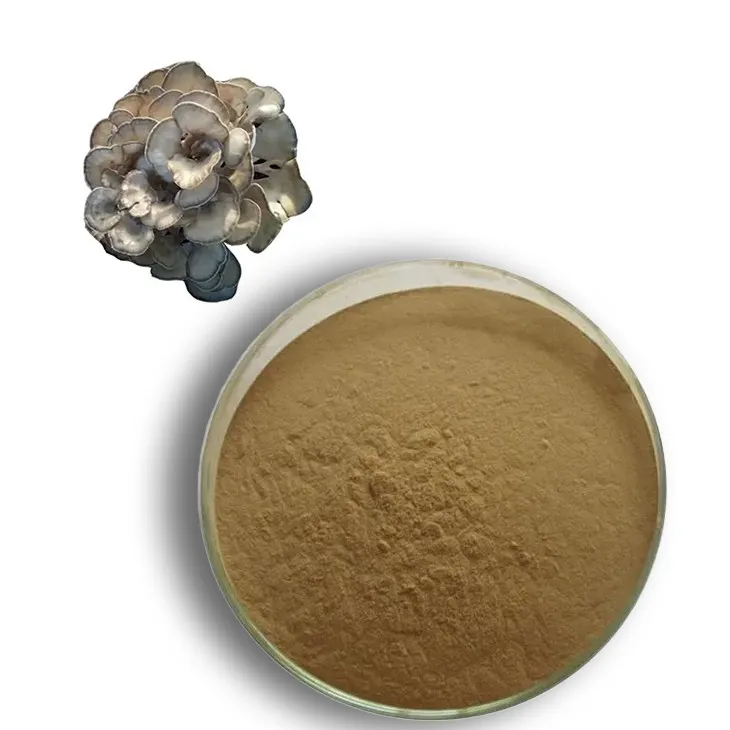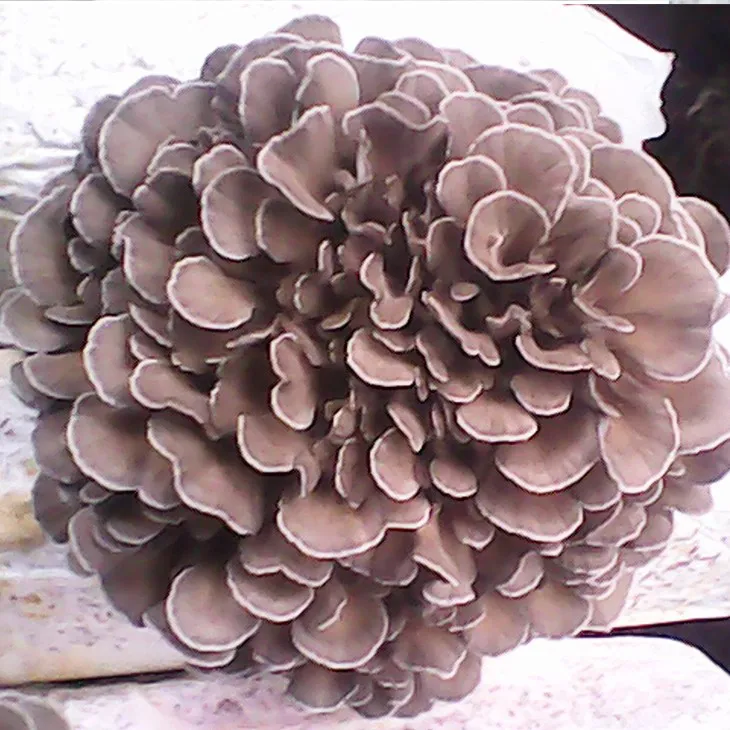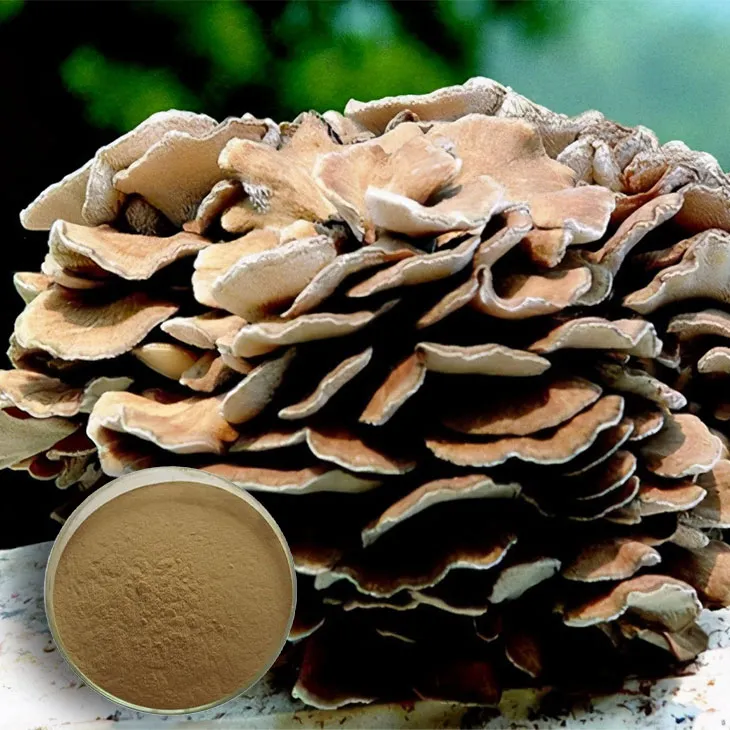- 0086-571-85302990
- sales@greenskybio.com
Navigating the Dosage: Recommendations for Maitake Mushroom Extract Intake
2024-07-04

1. Introduction
Maitake mushrooms, scientifically known as Grifola frondosa, have been used in traditional medicine for centuries. Their extract is now widely available in the form of supplements. However, determining the appropriate dosage can be a complex task. This article aims to provide comprehensive guidance on the dosage of maitake mushroom extract intake, considering scientific research, expert opinions, and practical aspects for different user groups.

2. Understanding Maitake Mushroom Extract
Maitake Mushroom Extract contains a variety of bioactive compounds. These include polysaccharides, such as beta - glucans, which are believed to have immune - enhancing properties. Beta - glucans can stimulate the immune system by interacting with immune cells in the body. Additionally, the extract may also contain other components like terpenoids and phenolic compounds, which contribute to its overall health - promoting effects.

3. Scientific Research on Dosage
3.1 Animal Studies
Animal studies have provided some initial insights into the effective dosages of Maitake Mushroom Extract. In mouse models, for example, researchers have found that certain dosages of beta - glucan - rich maitake extract can enhance the immune response. These studies often use dosages that are relative to the body weight of the animals. For instance, a study might administer a dosage of X milligrams per kilogram of body weight to observe the impact on immune cell activation. However, it's important to note that translating these animal - based dosages to humans is not always straightforward.
3.2 Human Clinical Trials
Human clinical trials are crucial for determining the appropriate dosage for people. Some trials have focused on the use of maitake mushroom extract in cancer patients. In these studies, dosages have ranged from Y grams to Z grams per day. The variation in dosages depends on the specific aims of the trial, such as whether it is focused on enhancing the immune system during chemotherapy or on directly affecting the growth of cancer cells. Other clinical trials in healthy individuals looking at immune - boosting effects have used different dosages as well. For example, a trial on healthy adults may have used a relatively lower dosage of around A grams per day to assess the impact on general immune function.

4. Expert Opinions on Dosage
Many experts in the field of nutrition and natural medicine have provided their opinions on maitake mushroom extract dosage. Some experts recommend starting with a relatively low dosage, especially for those who are new to taking the extract. This allows the body to adjust to the new supplement without experiencing any adverse reactions. A common starting dosage suggested by some experts is around B grams per day.
On the other hand, for individuals with specific health conditions, such as weakened immune systems or certain chronic diseases, experts may recommend a higher dosage. However, this should always be done under the supervision of a healthcare professional. For example, in the case of cancer patients undergoing treatment, an expert - recommended dosage might be in the range of C grams per day, depending on the individual's overall health status and the type of treatment they are receiving.
5. Dosage Recommendations for Different User Groups
5.1 Healthy Adults
For healthy adults looking to incorporate maitake mushroom extract for general health maintenance and immune support, a dosage of around D grams per day is often considered appropriate. This dosage can help stimulate the immune system and potentially provide other health benefits, such as antioxidant effects. It's important to note that individual responses may vary, and some people may need to adjust the dosage based on how their body reacts.
5.2 Elderly Individuals
The immune system tends to decline with age, making elderly individuals a group that could potentially benefit from maitake mushroom extract. However, due to possible age - related changes in metabolism and overall health, a slightly lower starting dosage may be advisable. A dosage of around E grams per day can be a good starting point. As with all user groups, it's important to monitor for any potential side effects and adjust the dosage as needed.
5.3 People with Compromised Immune Systems
Those with compromised immune systems, such as individuals with autoimmune diseases, HIV/AIDS, or those undergoing chemotherapy, may require a higher dosage of maitake mushroom extract. In these cases, a dosage in the range of F grams per day might be recommended, but this should be determined in consultation with a healthcare provider. The higher dosage is aimed at providing more significant immune - enhancing effects to help the body better defend against infections and diseases.
6. Factors Affecting Dosage
- Quality of the Extract: The purity and concentration of the maitake mushroom extract can significantly impact the appropriate dosage. A higher - quality extract with a higher concentration of active ingredients may require a lower dosage compared to a less pure extract.
- Method of Extraction: Different extraction methods can result in extracts with varying compositions and potencies. For example, extracts obtained using a more advanced and efficient extraction method may have a stronger effect, and thus, the dosage may need to be adjusted accordingly.
- Overall Diet and Lifestyle: An individual's diet and lifestyle can also play a role in determining the appropriate dosage. For instance, someone with a diet rich in other immune - boosting foods may require a lower dosage of maitake mushroom extract compared to someone with a less healthy diet.
7. How to Monitor the Effects and Adjust Dosage
When starting to take maitake mushroom extract, it's important to monitor the effects on your body. Some signs that the dosage may be appropriate include improved energy levels, better immune function (such as fewer colds or infections), and overall well - being. On the other hand, if you experience any adverse reactions such as stomach upset, nausea, or allergic symptoms, it may indicate that the dosage is too high or that you are sensitive to the extract.
If you suspect that the dosage needs to be adjusted, it's advisable to do so gradually. For example, if you are currently taking G grams per day and experiencing no effects or adverse reactions, you may consider increasing the dosage by a small amount, such as H grams, over a period of a few weeks. Conversely, if you are experiencing adverse reactions, you may need to decrease the dosage by a similar amount and monitor your body's response.
8. Precautions and Potential Side Effects
While maitake mushroom extract is generally considered safe for most people, there are some precautions to keep in mind. First, individuals with mushroom allergies should avoid taking the extract. Additionally, pregnant and breastfeeding women should consult their healthcare providers before taking maitake mushroom extract, as there is limited research on its safety in these populations.
Some potential side effects of taking maitake mushroom extract at high dosages include digestive issues such as diarrhea, abdominal pain, and nausea. If these symptoms occur, it's important to reduce the dosage or stop taking the extract and seek medical advice if the symptoms persist.
9. Conclusion
In conclusion, determining the appropriate dosage of maitake mushroom extract is a multi - faceted process that takes into account scientific research, expert opinions, and individual factors. By understanding the different aspects related to dosage, such as the user group, factors affecting dosage, and how to monitor and adjust it, individuals can make more informed decisions about incorporating maitake mushroom extract into their health regimens. However, it's always important to consult a healthcare professional, especially for those with pre - existing health conditions, to ensure safe and effective use of this natural supplement.
FAQ:
Q1: What factors are considered when determining the dosage of maitake mushroom extract?
When determining the dosage of maitake mushroom extract, several factors are taken into account. Firstly, scientific research on the bioactive compounds in maitake mushrooms and their effects at different concentrations is crucial. Secondly, the age, health status, and body weight of the user can influence the appropriate dosage. For example, a healthy adult may tolerate a different dosage compared to an elderly person or someone with a pre - existing medical condition. Also, the purpose of taking the extract, whether it is for general health maintenance, immune support, or for specific health issues, can play a role in dosage determination.
Q2: Are there different dosage recommendations for different health goals?
Yes, there are different dosage recommendations for different health goals. If the aim is general immune system support, a relatively lower dosage may be sufficient for some individuals. However, for those using maitake mushroom extract to manage specific health conditions such as blood sugar regulation or cancer support (although it should not be considered a sole treatment for cancer), a higher and more targeted dosage might be recommended. But these dosages should always be determined in consultation with a healthcare professional.
Q3: How do experts determine the appropriate dosage of maitake mushroom extract?
Experts determine the appropriate dosage of maitake mushroom extract through a combination of methods. They rely on existing scientific studies that have investigated the efficacy and safety of different dosages in both in - vitro and in - vivo experiments. Clinical trials also play a significant role, as they provide data on how humans respond to various dosages. Additionally, experts consider the overall health profile of the patient or user, including factors like age, gender, diet, and lifestyle. They also take into account any potential drug interactions that could affect the effectiveness or safety of the extract at a particular dosage.
Q4: Can taking too much maitake mushroom extract be harmful?
While maitake mushroom extract is generally considered safe, taking an excessive amount can potentially be harmful. High dosages may lead to digestive issues such as nausea, vomiting, or diarrhea. In some cases, it could also interact with medications or exacerbate certain health conditions. It's important to note that the body has a limit to how much of any substance it can process effectively, and exceeding that limit with maitake mushroom extract may disrupt normal physiological functions.
Q5: What are some practical tips for beginners starting to take maitake mushroom extract?
For beginners starting to take maitake mushroom extract, it is advisable to start with a low dosage and gradually increase it while monitoring how the body responds. It is also important to purchase the extract from a reliable source to ensure quality and purity. Beginners should consult a healthcare provider, especially if they have any underlying health conditions or are taking medications, to avoid potential interactions. Keeping a record of any changes in health or symptoms during the initial period of intake can also be helpful.
Related literature
- Title: The Bioactivity of Maitake Mushroom Extracts: A Comprehensive Review"
- Title: "Dosage - Dependent Effects of Maitake Mushroom in Health and Disease"
- Title: "Maitake Mushroom Extract: From Traditional Use to Modern Dosage Recommendations"
- ▶ Hesperidin
- ▶ citrus bioflavonoids
- ▶ plant extract
- ▶ lycopene
- ▶ Diosmin
- ▶ Grape seed extract
- ▶ Sea buckthorn Juice Powder
- ▶ Beetroot powder
- ▶ Hops Extract
- ▶ Artichoke Extract
- ▶ Reishi mushroom extract
- ▶ Astaxanthin
- ▶ Green Tea Extract
- ▶ Curcumin Extract
- ▶ Horse Chestnut Extract
- ▶ Other Problems
- ▶ Boswellia Serrata Extract
- ▶ Resveratrol Extract
- ▶ Marigold Extract
- ▶ Grape Leaf Extract
- ▶ blog3
- ▶ blog4
-
Pomegranate Extract
2024-07-04
-
Apricot Powder
2024-07-04
-
Maca Extract
2024-07-04
-
Ginseng Root Extract
2024-07-04
-
Cat Claw Extract
2024-07-04
-
Curcuma Longa Extract
2024-07-04
-
Oyster Mushroom Extract Powder
2024-07-04
-
Tormentil Extract
2024-07-04
-
Epimedium extract powder
2024-07-04
-
Cranberry Extract
2024-07-04





















